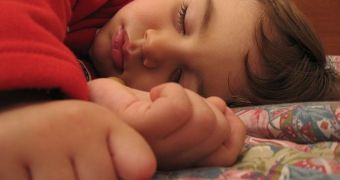A group of investigators from the American Academy of Sleep Medicine argues that individuals who are heartbroken or lonely may experience impaired sleep, as well as significant effects on their physical and mental health. The findings are useful for professionals who are trying to address these issues.
Loneliness does not affect health directly, but rather through impaired sleep, the research team says. As people start to lose hours of sleep each night, or cannot rest sufficiently, a host of processes is triggered in the body that eventually affects overall physical health.
This in turn affects mental health, setting the stage for the development of conditions such as depression and anxiety. During the study, the team learned that people slept, on average, the same number of hours as they usually did. However, they tended to wake up far more often.
The investigation was led by scientists at the University of Chicago, who were coordinated by lead researcher Lianne Kurina. She holds an appointment with the UC Department of Health Studies.
“We may all be dependent on feeling secure in our social environment in order to sleep soundly,” the research scientist explains. One of the reasons why lonely people wake increasingly often may be that their brains are forced to work on overtime during daytime.
Being alone is causing a lot of anxiety through these individuals, which is why they have to put in some extra effort to feel included, safe and loved. This extra strain takes its toll while these people are trying to sleep after a tiring day.
“It may very well be a stress factor. If you feel lonely, that itself could be a stress. It’s almost like a threat where you can’t feel safe,” adds the director of the Northwestern University Sleep Disorders Center, Phyllis Zee.
The new study was carried out on a group of 95 adults selected from a remote rural area in South Dakota, the United States. This population was very closely knit, with every test participants knowing everyone else. At the beginning of the study, all subjects reported their degree of loneliness.
Researchers then asked them to wear wristbands that could measure their activity and restlessness during sleep. What is very interesting in this setup is that none of the participants was socially isolated in the truest sense of the word.
This investigation represents “an interesting look at how our psychological health can effect our physical well being,” Kurina says. The team now plans to continue expanding on this work, so as to understand the connection in more detail.

 14 DAY TRIAL //
14 DAY TRIAL //